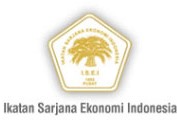Cash For Work? Extreme Poverty Solutions Based on Sustainable Development
(1) Master of Government Affairs and Administration, Jusuf Kalla School of Government, Universitas Muhammadiyah Yogyakarta
(2) Departmen of Government Affairs and Administration, Jusuf Kalla School of Government, Universitas Muhammadiyah Yogyakarta
(3) Political Science Departmen, Universitas Muhammadiyah Yogyakarta
Abstract
This article discusses how cash for work and the goals of sustainable development as solutions to extreme poverty. Lack of employment in villages is a factor in poverty in Indonesia. The cash for work program is an innovation of the central government and village government with village funds to provide productive activities to reduce poverty, and as a commitment of Indonesia to implement global goals, namely sustainable development goals. The research was conducted in the Village of Mekar Sari Ness, Village that implemented the program and faced challenges of poverty and unemployment. This study uses qualitative methods with descriptive statistical analysis using Nvivo12 plus data processing applications and using crosstab analysis. Sources of data obtained through government websites and application services, report documents, and journalism-related to the matter to be examined. This research concludes program cash for work can increase income per capita following SDGs standards, can open employment opportunities, especially for the rural poor and have a significant impact on optimizing village funds. Challenges going forward are managing village funds that must be in line with Ministry regulations, recruitment of workers and skills aimed at the poor and marginalized, as well as timeliness in implementing programs.
Keywords
Full Text:
PDFReferences
Altenburg, T. et al. (2017). Managing coastal ecosystems in the Philippines: what Cash for Work programmes can contribute. Deutsches Institut für EntwicklungspolitikgGmbH Tulpenfeld.
Bappenas RI. (2019). Final Report on the Preparation of the Draft Development Plan (and Deputy SMEs for Poverty, Manpower Affairs (Ed.)).
Bappenas RI. (2020). Economic Development of Indonesia and the World in Quarter II 2019. Journal of Chemical Information And Modeling,3(4), 1–89.
BPS Batanghari. (2019). Bajubang District in Figures 2019 (Coordinator Statistics of Bajubang District (Ed.)). Bps-Statistics of Batanghari Regency. Https:// Doi.Org/110.2001.1504041
BPS RI. (2019a). Statistics of the State of Employment in Indonesia 2019 [Statistik Keadaan Ketenaga- kerjaan Indonesia 2019] (Issue 41, Pp. 1–16). Badan Pusat Statistik.
BPS RI. (2019b). Indonesian Poverty Profile Statistics (Issue 57, Pp. 1–8). Badan Pusat Statistik.
Brundtland, G. H. (1987). What is sustainable development. Our common future, 8-9.
D.Sachs, J. (2015). The Age of Sustainable Development. A Columbia University Press E-Book.
Dian, T. R. (2019). Community Empowerment through Cash For Work Programs (Case Study of Plandaan Village, Kedungwaru District, Tulungagung Regency). Journal of Chemical Information And Modeling, 1(1), 1–6. Https://Doi.Org/10.1017/Cbo9781107415324.004
Dony. (2018). Supervision To Be Right On Target. Supervision News, Xxv(1), 19. Https://Doi.Org/10.1017/Cbo9781107415324.004
Eko Priyo Purnomo, Ghea Obisva, Z. A. A. (2019). Smart Government: The Involvement of Government Towards Public Services in Yogyakarta For Smart Development. International Conference on Public Organization Asia Pacific Society For Public Affairs, August, 28–30.
Food and Agriculture Organization. (2018). Cash For Work (P.1). www.fao.org/Emergencies/Fao-In-ActAction/Cash-And-Vouchers/En
Hadi Sumarto, R., & Dwiantara, L. (2019). Utilization of Village Funds for Improvement of Living Standards of Rural Communities through Empowerment of Village Communities. Journal Publicuho, 2(2), 65.
Hai-Jew, S. (2020). Nvivo 12 Plus’s New Qualitative Cross-Tab Analysis Function. Kansas State University. https://Scalar.Usc.Edu/Work/C2c-Digital-Magazine-Fall- 2018--Winter- 2019/Nvivo-12-Plus-New-Qual-Cross-Tab-Analysis-Function
Hák, T., Janoušková, S., & Moldan, B. (2016). Sustainable Development Goals: A Need for Relevant Indicators. Ecological Indicators, 60, 565–573.
Herdiyana, D. (2019a). Cash Intensive Implementation in Reducing Lampung and Riau. Jurnal Penelitian Pendidikan Dan Ekonomi, 16(2), 176–188. Https://Doi.Org/10.25134/Equi.V16i02.Abstract
Herdiyana, D. (2019b). E The Influence of Cash Labor Intensive towards Poverty Level in Rural West Java and Riau Provinces. Journal Ekonomi dan Industri, 20(3), 49–65.
Hidayah, I., & Mukhlis, I. (2019). Dana Desa On Clean Water And Sanitation Access in Indonesia: Does Cash-For-Work (Pkt) Matter? August, 104 – 114.
Ilham, M., Rohman, N., & Mariyah, S. (2019). Public Response Analysis Toward Poverty Reduction Program in Indonesia 2014-2018 Through Twitter Data. July, 67–84.
Manembu, R. R., Kusen, A. W., & Deeng, D. (2019). Labor Intensive Contribution to Community Life in the Use of Village Funds (Case Study of Kaneyan Village, Tareran District, Minahasa Selatan Regency. Holistik, Journal of Social and Culture.
Mubarok, S. (2018). Islam and Sustainable Development: A Case Study of Protecting the Environment and Economic Justice. Dauliyah Journal of Islamic And International Affairs, 3(1), 129–146.
Muhtarom, M., Murtianto, Y. H., & Sutrisno, S. (2017). Thinking Process of Students With High-Mathematics Ability (A Study on QSR Nvivo -Assisted Data Analysis). International Journal of Applied Engineering Research, 12(1), 1. Https://Doi.Org/6934-6940.
Nasution, L. M. (2017). Descriptive statistics. Journal Hikmah, 14(1), 5472–5476. Https://Doi.Org/10.1021/Ja01626a006
Ngoya, M. F. (2015). Guarding Sustainable Development Goals (Sdgs); Straightening the Orientation of Just Development. Sosioreligius, I(1), 77–88.
Nurizzati, Y. (2018). The Role of Statistics in Socio-Economic Research. Jurnal Saintekom, 6(2),
Pahlawan., Y. P., & Ratna, R. (2018). The Effect of Education Level, Unemployment Rate and Economic Growth On Poverty Rate in Indonesia 2012-2017 Period. Journal of Maliksussaleh Public Economics, 1(02), 44–49.
Rahadian, A. H. (2016). Sustainable Development Strategy. Prosiding Seminar Stiami, III(01), 46–56. https://doi.org/2355-2883
Rai Budiasa, A. A. G. Et. A. (2019). Implementation of Cash Labor Intensive Policy for the Poor in Lebih Village, Gianyar. Public Inspiration : Jurnal Administrasi Publik, 4(2), 71–82.
Ramly, A. R., Wahyuddin, W., Djalil, M. A., & Indriani, M. (2020). The Effectiveness of the Utilization of Village Funds in Alleviating Poverty in Kuala Subdistrict, Nagan Raya Regency. Jshp : Jurnal Sosial Humaniora Dan Pendidikan, 4(1), 1–12. https://doi.org/10.32487/jshop.v4i1.666
Rudianto, A. (2018). Preparation of the Work Program for Indonesian Organizations (OI) for the Indragiri Regency Sustainable Development Goals (SDSG) for the 2017-2021 Period. Selodang Mayang, 4(2), 95–100.
Ruhmaniyati. (2018). Improving Cash Labor Intensive Policy in the Village. 5, 1 –4. https://www.smeru.or.id/id/ content/Memperbaiki-KebijakanPadat-Karya-Tu-nai-di-desa
Sachs, J. (2015). The End of Poverty: Economic Possibilities for Our Time. In Sbp-Research Bulletin, 1(1).
Septiadi, D., & Nursan, M. (2020). Poverty Alleviation in Indonesia: Analysis of Macroeconomic and Policy Indicators. Jurnal Hexagro, 4(1), 1–14.
Sholikhah, A. (2016). Descriptive Statistics In Qualitative Research.
Komunika: Jurnal Dakwah Dan Komunikasi, 10(2), 342–362.
Siahaan, J. T. (2020). Considering Rural Poverty (P. 1).
Soleh, A. (2017). Employment and Unemployment Problems in Indonesia. Jurnal Ilmiah Cano Ekonomos, 6(2), 83–92.
Suardi, W. (2018). Small Notes Regarding Descriptive Qualitative Research Design. Islam Nusantara, 1(1), 1–11.
Titi, R. A. (2020). Analysis of Students' Mathematical Representation Ability. Jurnal Ilmiah Pendidikan, 4(1), 1257–1269.
Tristananda, P. W. (2018). Grounding Education For Sustainable Development (ESD) in Indonesia in Facing Global Issues. Purwadita, 2(2), 42‒49.
Vasu Deva Rao, T. (2017). Sustainable Development (1st Ed.). Ideal International E-Publication Pvt.Ltd.
Wekke, I. S. (2017). Qualitative Research Design. Pascasarjana Sekolah Tinggi Agama Islam Negeri (Stain) Sorong, 6(1), 5–9.
Widianingsih, I., & Paskarina, C. (2019). Defining Inclusiveness in Development: Perspective From Local Government’s Apparatus. Jurnal Bina Praja, 2(21), 137–147.
Zuhdiyaty, N., & Kaluge, D. (2018). Analysis of Factors Affecting Poverty in Indonesia During the Last Five Years. Jurnal Ilmiah Bisnis dan Ekonomi Asia, 11(2), 27–31.
Refbacks
- There are currently no refbacks.

This work is licensed under a Creative Commons Attribution 4.0 International License.







